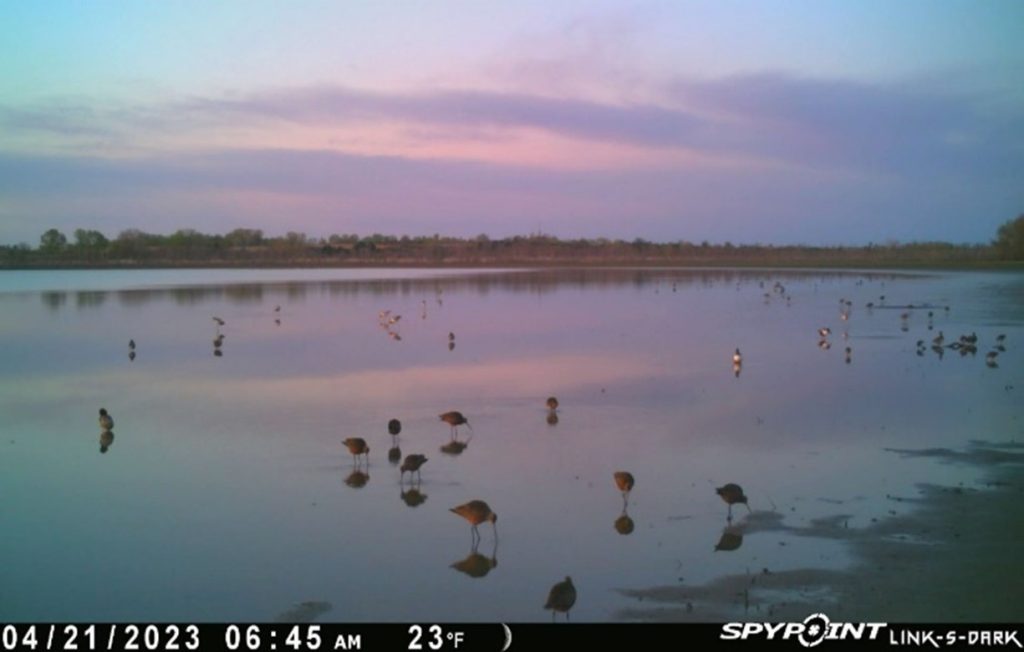Water level management (WLM) is an important management approach for many different benefits at reservoirs including threatened and endangered species (TES) management. Whooping Cranes (WHCR) are an endangered species that require shallow water depths (<18 inches), open spaces without nearby woody or tall vegetation, and a glide path free of obstructions for roost locations. Many USACE reservoirs within the Great Plains support stop-over habitat for WHCR along with numerous other waterbirds. WLM can greatly benefit these species by lowering pool levels at the appropriate time of year to increase habitat (e.g. mudflats). In addition to benefits to TES, WLM can benefit reservoirs by reducing shoreline erosion during fall and winter, as well as better control of invasive species with a eradication focus on phragmites at Wilson Lake.

Objectives
The goal of this project is to further aid the USACE mission by testing efficacy of remote sensing to measure multiple environmental benefits of an EWN action (WLM). Our primary objectives at Wilson Lake are to (1) use existing bathymetry data to establish exposed shoreline area at different water levels, and (2) establish camera arrays to detect seasonal presence of sensitive bird species, including WHCR. This information will directly assist development of an ESA Section 7(a)(1) conservation plan for WHCR, being drafted under the DOER TEST initiative. Our second objective is to explore, with partners, how to work with WLM to monitor and assess changes in shoreline erosion and spatial distribution of invasive species. This latter objective includes development of a sound scientific plan for evaluating effects of WLM on these two problematic issues widespread in the Great Plains.


